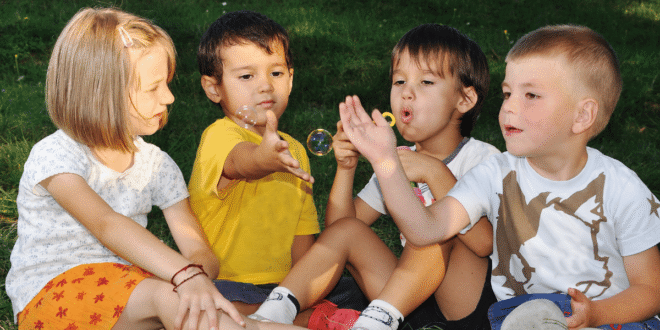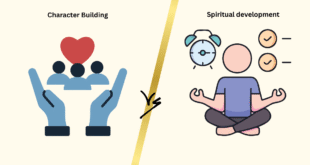Childhood is a remarkable journey filled with growth, discovery, and transformation. Among the child development stages, middle childhood (6-12 years) stands out as a crucial period where children move beyond the early foundations of life and start preparing for adolescence. This stage bridges the gap between early childhood and teenage years, shaping a child’s physical, emotional, cognitive, and social development.
In this article, we’ll explore middle childhood development in depth, including physical growth, emotional regulation, cognitive skills, social relationships, parenting tips, and common challenges. Whether you are a parent, teacher, or caregiver, understanding this stage will help you support children in becoming confident, responsible, and well-rounded individuals.
What is Middle Childhood?
Middle childhood, also known as the school-age stage, typically spans from 6 to 12 years. It begins when a child enters formal schooling and ends when puberty begins. During this stage, children experience steady physical growth, rapid cognitive development, and expanding social networks.
Key characteristics of this stage include:
- Transition from play-based learning to structured education.
- Increased independence and desire for autonomy.
- Development of problem-solving and logical thinking skills.
- Greater awareness of self-identity and emotions.
Psychologist Erik Erikson described this stage as the conflict between Industry vs. Inferiority. Children strive to master skills and tasks; success leads to confidence and competence, while failure can cause feelings of inadequacy.
Importance of Middle Childhood in Overall Development
The 6-12 year stage is like the foundation of a building’s second level. The basics were laid during early childhood, but now children start building essential life skills, such as:
- Academic skills like reading, writing, and mathematics.
- Social-emotional skills like empathy, cooperation, and resilience.
- Physical skills such as coordination, strength, and agility.
- Moral understanding of right and wrong.
These developments prepare children for adolescence, a more complex and challenging stage of growth.
Physical Development in Middle Childhood
Physical growth during middle childhood is gradual but consistent. Unlike the rapid growth of infancy and early childhood, the 6-12 age range features steady height and weight increases.
Key Physical Changes
- Height and Weight
- Children grow about 2 inches (5 cm) per year on average.
- Weight gain is gradual, preparing the body for upcoming puberty.
- Motor Skills
- Gross motor skills: Improved balance, speed, and coordination.
Examples: Jumping rope, riding a bicycle, playing sports. - Fine motor skills: Better hand-eye coordination and dexterity.
Examples: Writing neatly, tying shoelaces, creating art projects.
- Gross motor skills: Improved balance, speed, and coordination.
- Teeth and Oral Health
- Loss of baby teeth and growth of permanent teeth.
- Importance of dental hygiene increases significantly.
- Brain Development
- The brain reaches about 90% of its adult size by age 10.
- Increased ability to focus and process information.
Tips for Supporting Physical Development
- Encourage daily physical activity like outdoor games and sports.
- Provide a balanced diet rich in calcium, protein, and vitamins.
- Limit screen time to prevent sedentary habits.
- Schedule regular health checkups and dental visits.
Cognitive Development in Middle Childhood
The cognitive growth between 6-12 years is remarkable as children transition from pre-operational thinking to concrete operational thinking, as described by Jean Piaget.
Key Cognitive Skills
- Logical Thinking
Children can now think logically about concrete situations.
Example: Understanding why plants need sunlight to grow. - Problem-Solving Abilities
They begin to analyze problems step-by-step and find practical solutions. - Improved Memory
Memory capacity grows, aiding academic success. - Mastery of Academic Skills
- Reading comprehension improves.
- Mathematical concepts like multiplication and division become clear.
- Critical thinking begins to develop.
- Understanding Rules and Justice
Children grasp the importance of fairness, rules, and consequences.
Emotional Development in Middle Childhood
Emotions become more complex and refined during this stage. Children begin to regulate their feelings and develop a deeper understanding of others’ emotions.
Key Aspects of Emotional Growth
- Self-Awareness:
Children become more aware of their strengths and weaknesses. - Empathy:
Ability to understand and share others’ feelings increases. - Independence:
Desire to make decisions and take responsibility grows. - Self-Esteem:
Positive feedback from parents and teachers builds confidence.
Challenges in Emotional Development
- Peer pressure and fear of rejection.
- Managing disappointment and failure.
- Anxiety related to academics or social situations.
Tip:
Encourage open communication and validate your child’s feelings. Teach coping skills such as deep breathing and positive self-talk.
Social Development in Middle Childhood
Social skills take a big leap forward during middle childhood. Friendships become central, and peer acceptance becomes a significant motivator.
Key Social Milestones
- Peer Relationships
- Children form strong friendships based on trust and shared interests.
- Peer approval becomes more important than parental approval.
- Teamwork and Cooperation
Participation in group activities, such as school projects or sports teams, develops leadership and collaboration skills. - Understanding Social Norms
Children learn about societal expectations, manners, and etiquette. - Conflict Resolution
Improved negotiation and problem-solving skills during disagreements.
Moral and Spiritual Development
By this stage, children begin to internalize values and develop a moral compass.
- Understanding Right and Wrong:
Moral reasoning moves beyond punishment and reward. - Spiritual Growth:
Parents can introduce prayers, gratitude practices, and teachings about faith. - Empathy and Justice:
Children start caring about fairness and helping others.
Parenting Tips for Middle Childhood (6-12 Years)
Parenting during this stage requires balance, giving children independence while providing guidance.
Practical Tips
- Support Academic Growth
- Create a homework routine.
- Encourage reading and curiosity.
- Avoid excessive academic pressure.
- Foster Healthy Friendships
- Get to know your child’s friends.
- Teach kindness, sharing, and inclusion.
- Build Emotional Resilience
- Teach problem-solving and coping strategies.
- Model positive behavior in difficult situations.
- Encourage Physical Activity
- Sports or outdoor play for at least 60 minutes daily.
- Limit sedentary screen time.
- Promote Responsibility
- Assign age-appropriate chores.
- Teach financial responsibility through small allowances.
Common Challenges and Solutions
| Challenge | Solution |
| Peer pressure | Teach assertiveness and decision-making skills |
| Low self-esteem | Offer praise for effort, not just results |
| Academic struggles | Work with teachers and provide tutoring |
| Screen addiction | Create screen-time boundaries and alternatives |
| Sibling rivalry | Encourage teamwork and set clear rules |
Middle Childhood and Technology Use
With the rise of digital devices, this stage often marks the first exposure to technology. While technology can be educational, excessive screen time poses risks such as obesity, reduced sleep quality, and social isolation.
Tips for Healthy Technology Use:
- Set clear time limits for devices.
- Encourage educational apps and supervised usage.
- Promote offline activities like reading or puzzles.
When to Seek Professional Help
Sometimes, developmental delays or behavioral concerns require expert intervention. Consult a pediatrician or child psychologist if you notice:
- Persistent sadness or anxiety.
- Extreme aggression or withdrawal.
- Difficulty in school despite support.
- Signs of developmental regression.
Conclusion
Middle childhood (6-12 years) is a transformational stage filled with opportunities for growth in every area of life, physical, emotional, cognitive, social, and moral. By understanding these development stages, parents and caregivers can provide the right support and guidance to help children thrive.
This is the stage where children lay the foundation for adolescence and adulthood. With love, structure, and encouragement, you can nurture a confident, resilient, and well-rounded individual.
 Edutarbiyah English Blog of Parenting and Tarbiyah
Edutarbiyah English Blog of Parenting and Tarbiyah



